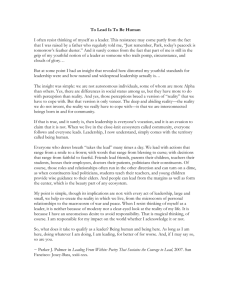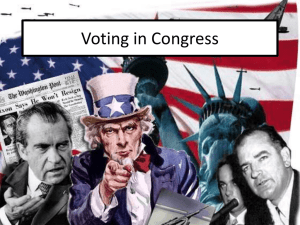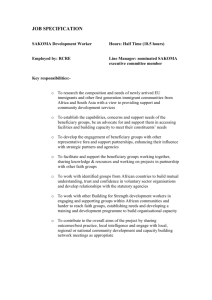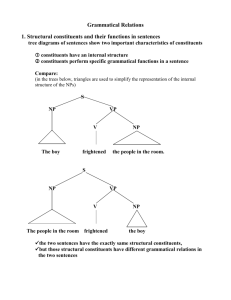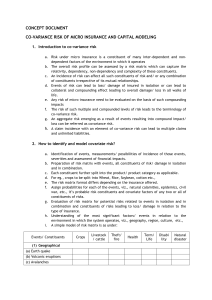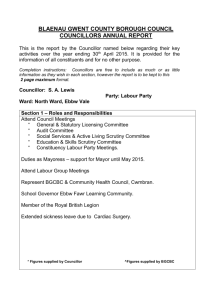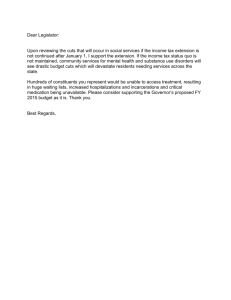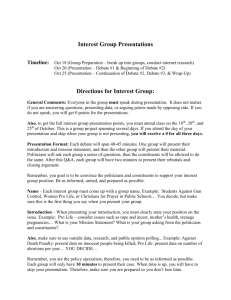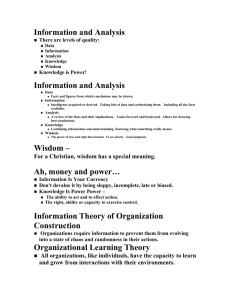File
advertisement
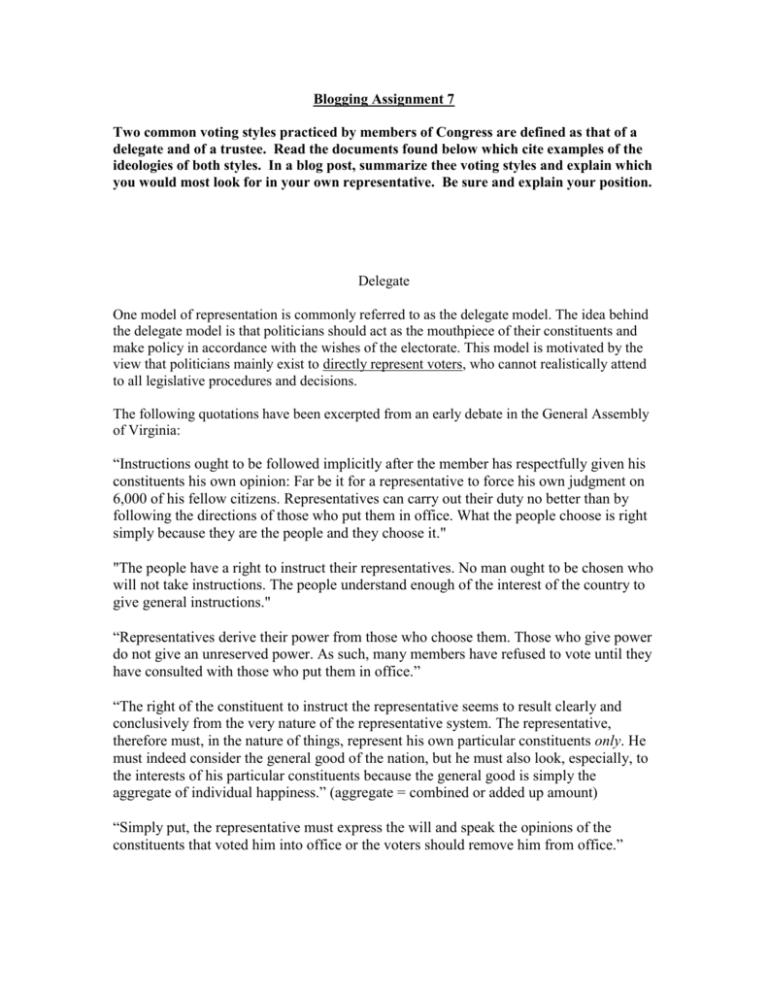
Blogging Assignment 7 Two common voting styles practiced by members of Congress are defined as that of a delegate and of a trustee. Read the documents found below which cite examples of the ideologies of both styles. In a blog post, summarize thee voting styles and explain which you would most look for in your own representative. Be sure and explain your position. Delegate One model of representation is commonly referred to as the delegate model. The idea behind the delegate model is that politicians should act as the mouthpiece of their constituents and make policy in accordance with the wishes of the electorate. This model is motivated by the view that politicians mainly exist to directly represent voters, who cannot realistically attend to all legislative procedures and decisions. The following quotations have been excerpted from an early debate in the General Assembly of Virginia: “Instructions ought to be followed implicitly after the member has respectfully given his constituents his own opinion: Far be it for a representative to force his own judgment on 6,000 of his fellow citizens. Representatives can carry out their duty no better than by following the directions of those who put them in office. What the people choose is right simply because they are the people and they choose it." "The people have a right to instruct their representatives. No man ought to be chosen who will not take instructions. The people understand enough of the interest of the country to give general instructions." “Representatives derive their power from those who choose them. Those who give power do not give an unreserved power. As such, many members have refused to vote until they have consulted with those who put them in office.” “The right of the constituent to instruct the representative seems to result clearly and conclusively from the very nature of the representative system. The representative, therefore must, in the nature of things, represent his own particular constituents only. He must indeed consider the general good of the nation, but he must also look, especially, to the interests of his particular constituents because the general good is simply the aggregate of individual happiness.” (aggregate = combined or added up amount) “Simply put, the representative must express the will and speak the opinions of the constituents that voted him into office or the voters should remove him from office.” Trustee One model of representation is commonly referred to as the trustee model. In this model politicians are given discretion over policy; even though their policy decisions may not always coincide with the view of the electorate, they are entrusted to implement policies that are geared towards the long-run good of a society. This model is motivated by the view that politicians should be more than simply representation for voters in absentia, but that they should be relied on for their competence, judgment, and leadership. The following quotations have been excerpted from an essay written by John F. Kennedy, former Massachusetts senator and United States president, in 1956: “We must place first the responsibility we owe not to our party, or even to our constituents, but to our individual consciences. It is a little easier to dismiss one’s obligations to local interest and party ties than to face, squarely, the problem of one's responsibility to the will of his constituents. According to this school of thought, if I am to be properly responsive to the will of my constituents, it is my duty to place their principles, not mine, above all else. This may not always be easy, but, nevertheless, it is the essence of democracy: faith in the wisdom of the people and their views. To be sure, the people will make mistakes – they will get no better government than they deserve – but that is far better than for a representative of the people to say that he knows better than the people do about what is good for them. Is he not chosen to vote as they would vote were they in his place? It is difficult to accept such a narrow view of the role of the United States senator, a view that assumes the people of Massachusetts sent me to Washington to serve merely as a seismograph to record shifts in popular opinion. I reject this view not because I lack faith in the wisdom of the people, but because this concept of democracy actually puts too little faith in the people. Those who believe the representative is not bound to follow every impulse of the electorate do trust in the wisdom of the people. They have faith in the people’s ultimate sense of justice, faith in their ability to honor courage and respect judgment, and faith that in the long run, the people will act unselfishly for the good of the nation. It is that kind of faith on which democracy is based. Not simply the hope that public opinion will always be the same as what's in the public's best interest. History has shown us time and time again that what the public wants is not always the best course of action in the long run.” “The voters selected us, in short, because they had confidence in our judgment and our ability to exercise that judgment from a position where we could determine what their own best interests are as a part of the nation's best interests. This may mean that we must occasionally lead, inform, correct, and sometimes even ignore our constituents’ opinions if we are to fully exercise that judgment for which we were elected.” “I question whether any senator, before we vote on a bill, can state with one hundred percent certainty exactly how the majority of his constituents feel on the issue exactly as it presented to the Senate. In truth, though I am more in touch with my constituents than many of my colleagues are, I rarely know how the great majority of the voters feel, or even how much they know about the issues that seem so important in Washington.” “Only the very courageous will be able to make the hard and unpopular decisions necessary for our survival as a country.”
